Case Study
Calm in a crisis: FightCOVID.app
Last Updated on October 7, 2025
by White Widget Team
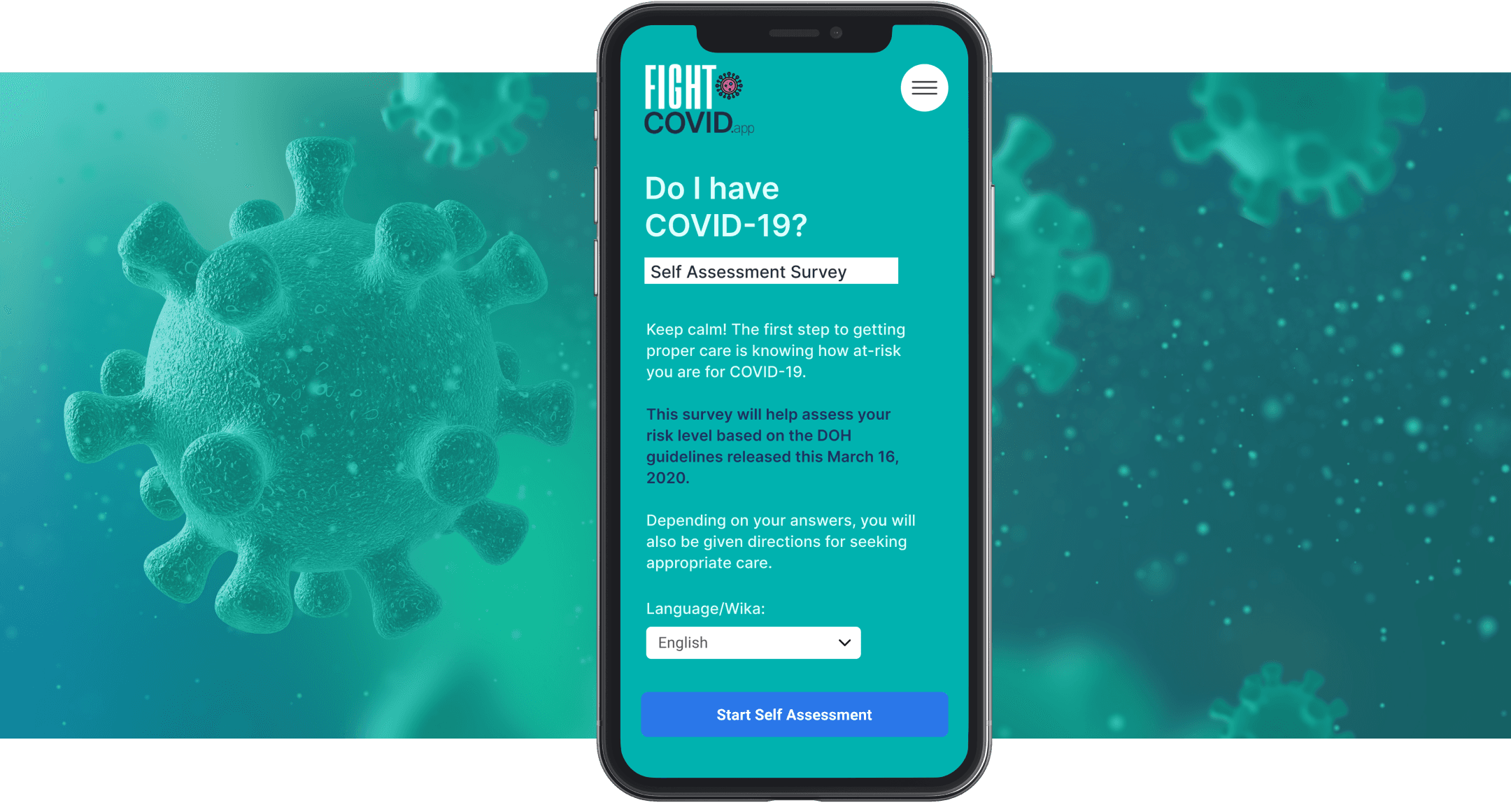
Is your finger on the pulse of healthcare innovation? Let's craft solutions that heal the world.
FightCOVID.app is a self-assessment web app that was created in the wake of the COVID-19 pandemic. It’s designed to help users determine if they are at risk for COVID-19, whether they should go to a hospital to be tested and treated, and give them the right information to do this safely.
Context
Entire Platform
Product Design
UX Research
Custom Development
Mobile Responsive App
Web Moderator App
Cybersecurity
DevOps
As the COVID-19 pandemic raged across the world, the Philippine government system was faced with a frightening prospect: hospital overcrowding. Without a solid triage plan in place, the impending wave of COVID-19 patients would rapidly overwhelm the healthcare system. The Department of Health released an algorithm in the form of guidelines that would help people decide whether or not to get checked, but it was hard to understand for anyone not well-versed in medicine.
Lightbulb Moment and Collaborations
On March 15, before the lockdown of the country, while brainstorming about how to respond to the looming crisis, the White Widget team figured that a simple, easy-to-use survey-style app would be able to address the triage needs of our hospitals. It would simplify the DOH guidelines into a series of questions about a user’s travel and exposure history, co-morbidities, and other pertinent information. Then, they’d be advised on their next steps.
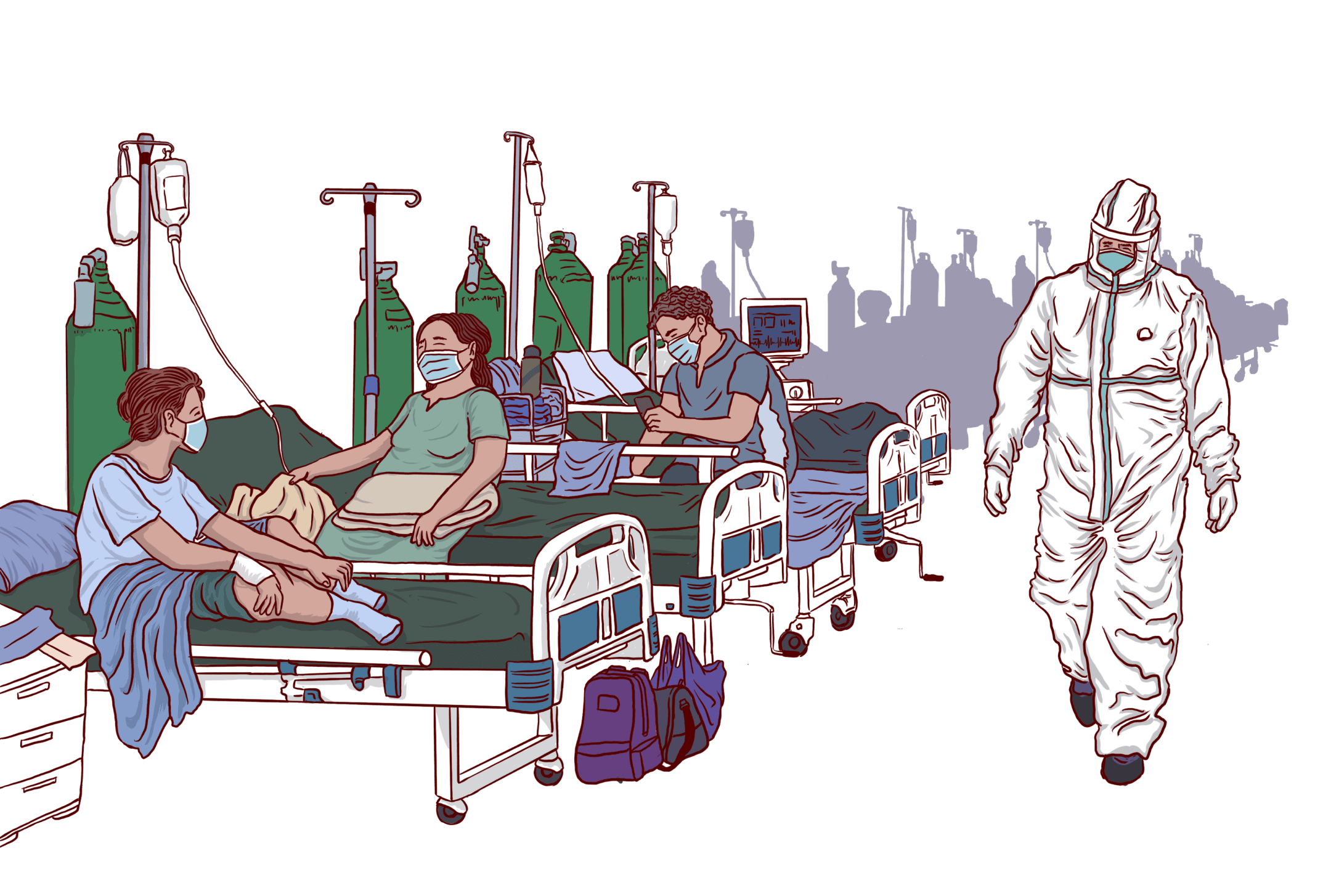
To get the knowledge we needed, White Widget sought the help of volunteer doctors who wanted to help reduce the load on hospitals, as well as prevent infections and quarantine incidents due to patients who misreport their history. We worked closely with 8 volunteer doctors who were part of every step of the process, from zeroing in on the algorithm, to the UX copy. By the end of the project, our doctors had actually learned to become more conscious of how positioning and microcopy worked in UX design.
FightCOVID App Twitter pageFightCOVID.app is a tool meant to reduce overcrowding in hospitals, clinics, and health centers, by accomplishing this self-assessment survey, you’re doing your part in making sure high-priority patients get the care they need.”
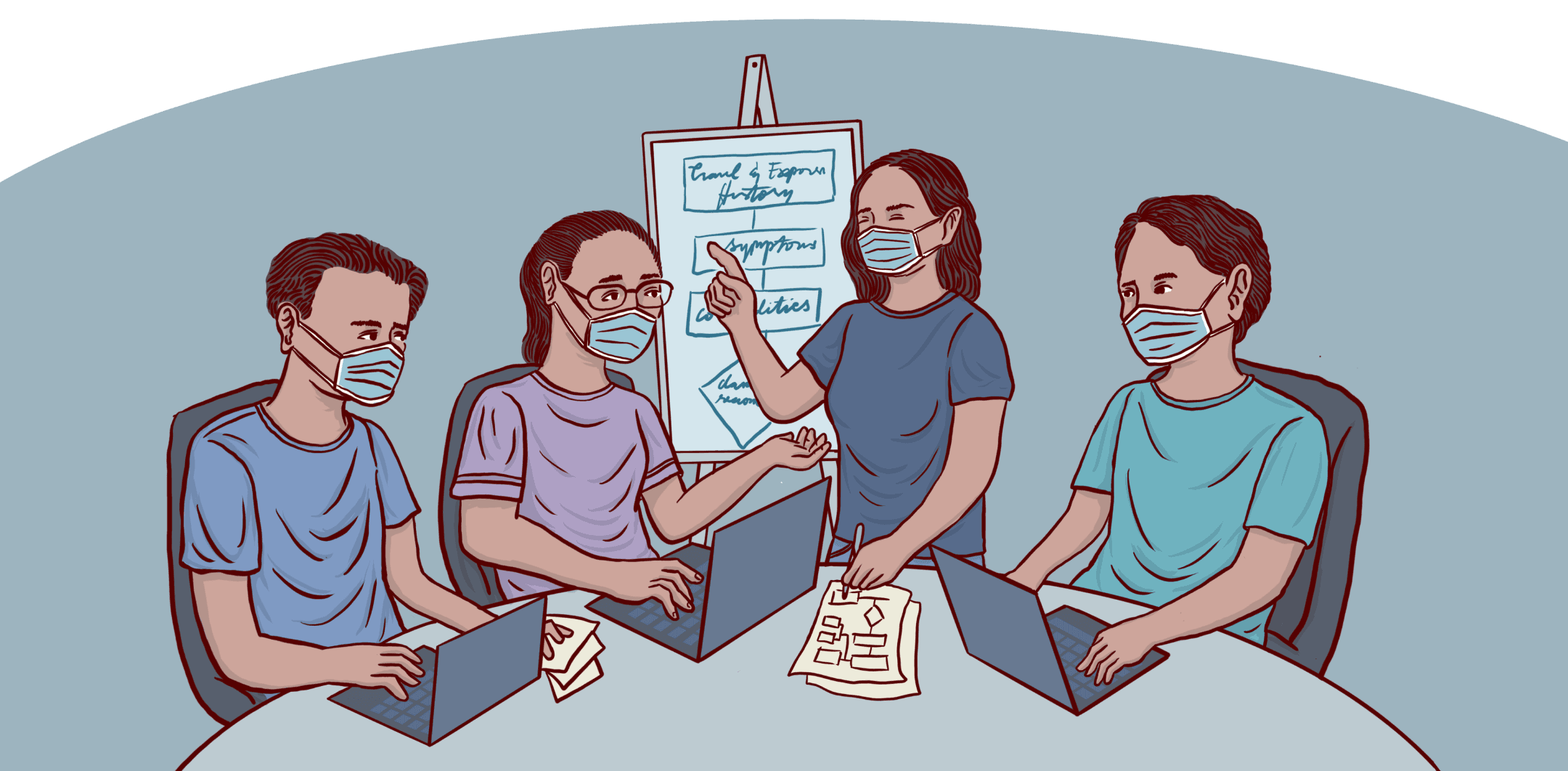
Translations
Another reason why the app’s language had to be simple? The Philippines has over a hundred spoken languages. COVID-19 could strike anywhere in the archipelago, which means that we couldn’t just stick to English or Tagalog and call it a day. We assembled a group of hundreds of translators to help translate the app into 17 languages and dialects, and we had to coordinate new translations every time we made changes to the copy and algorithm. FightCOVID’s translation wasn’t the only good that came out of the group - our efforts accidentally started a movement in translating COVID-19 medical paperwork. The languages and dialects covered by FightCOVID app were the following: English, Akeanon, Asi, Bikol-Albay, Bikol-Sentral, Boholano, Cebuano, Davao-Bisaya, Filipino, Hiligayno, Ilocano, Kapampangan, Maguindanao, Minasbate, Onhan, Pangasinan, and Surigaonon.
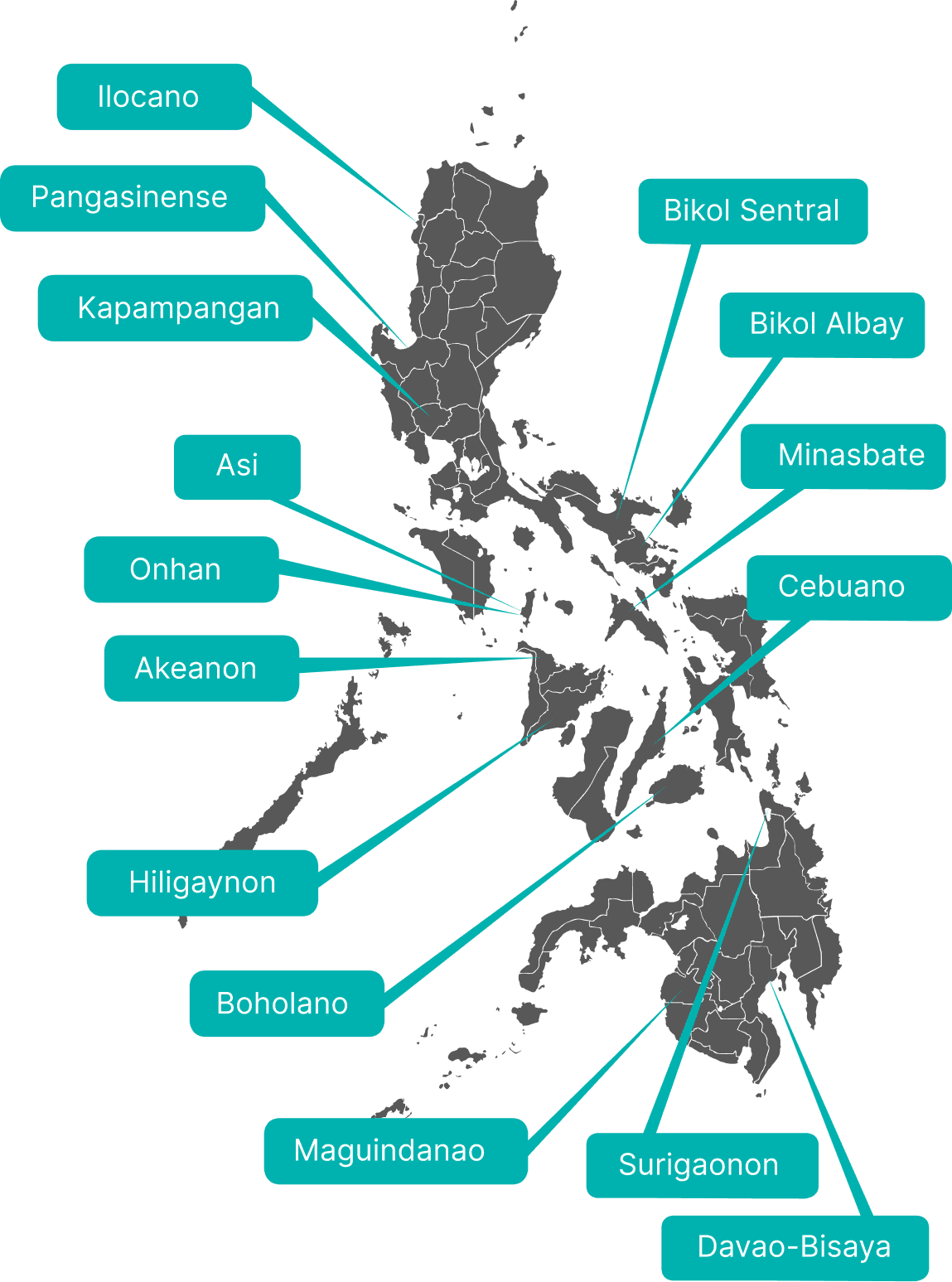
Analyzing The Algorithm
White Widget started with a huge amount of data to work with, as well as an unclear algorithm defining COVID that was challenging for the public to understand. We were faced with the challenge of working off the discussions with our doctor volunteers, identifying definitions in the DOH documents, and creating a proper user experience flow that could help users with as few screens and as few questions as possible.
We also had to take into account the language and ease-of-use of the app - it would have to be as simple as possible, to ensure that any layperson would be able to understand.
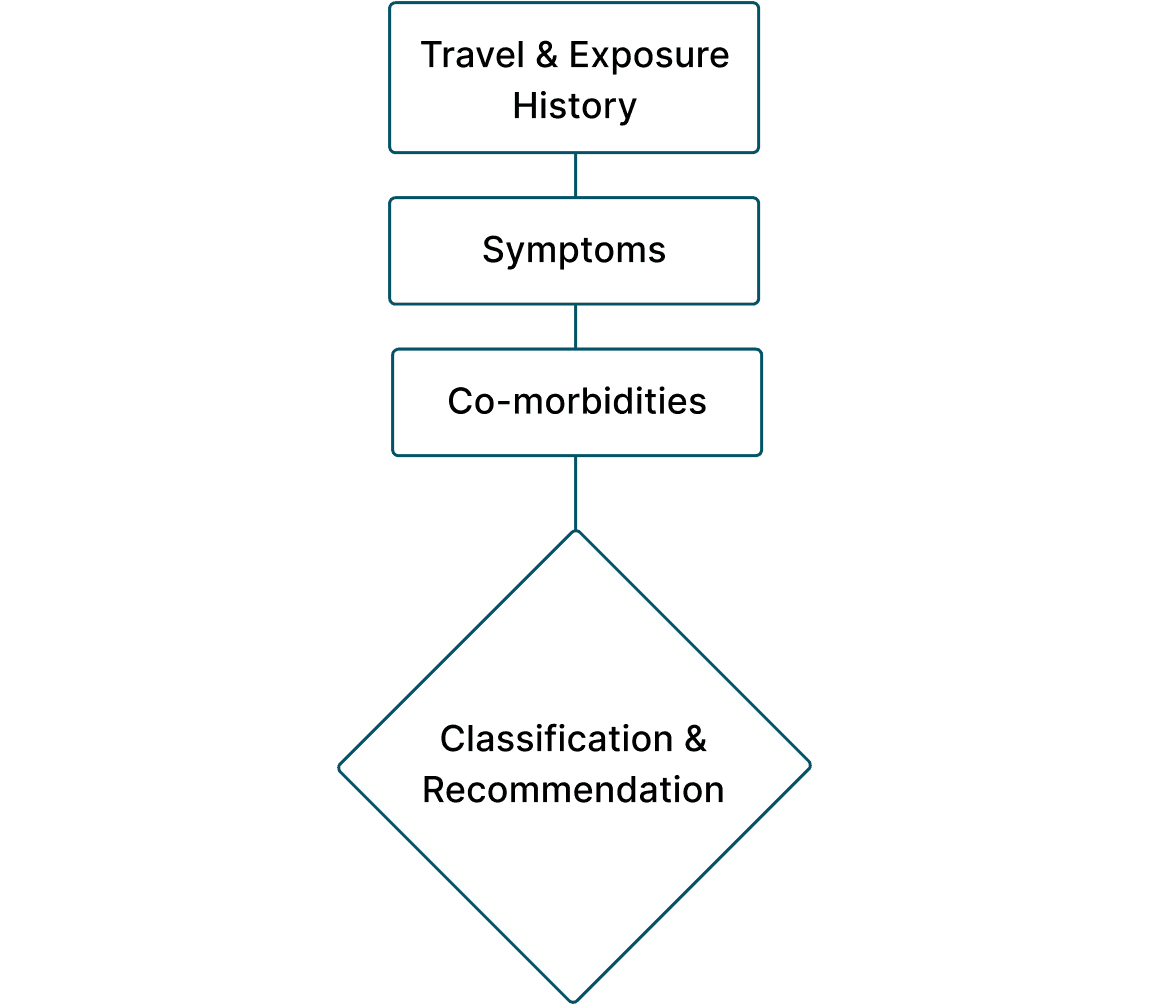
Mobile-first, Lightweight, User-friendly
White Widget knew that a huge number of Filipino users were mobile-only, and had limited access to mobile data. To address this, we’d need to make a web app that was mobile-first, so that mobile users would have instant access to all the information and app functions they needed right from the get-go. We’d then create the desktop version based on what was shown on mobile, expanding it as necessary with sidebars and menus. We also needed to keep our assets as lightweight and high-performance as possible. Large images would eat up users’ mobile data plans, while older phones might not render the UI correctly. We’ve always had a focus on making our projects with accessibility in mind. Our developers and product team worked to ensure support for high-contrast displays and text-to-speech screen readers for visually-impaired users. We also acknowledged that text sometimes appears illegibly on certain displays, so mobile zoom was enabled for every screen.
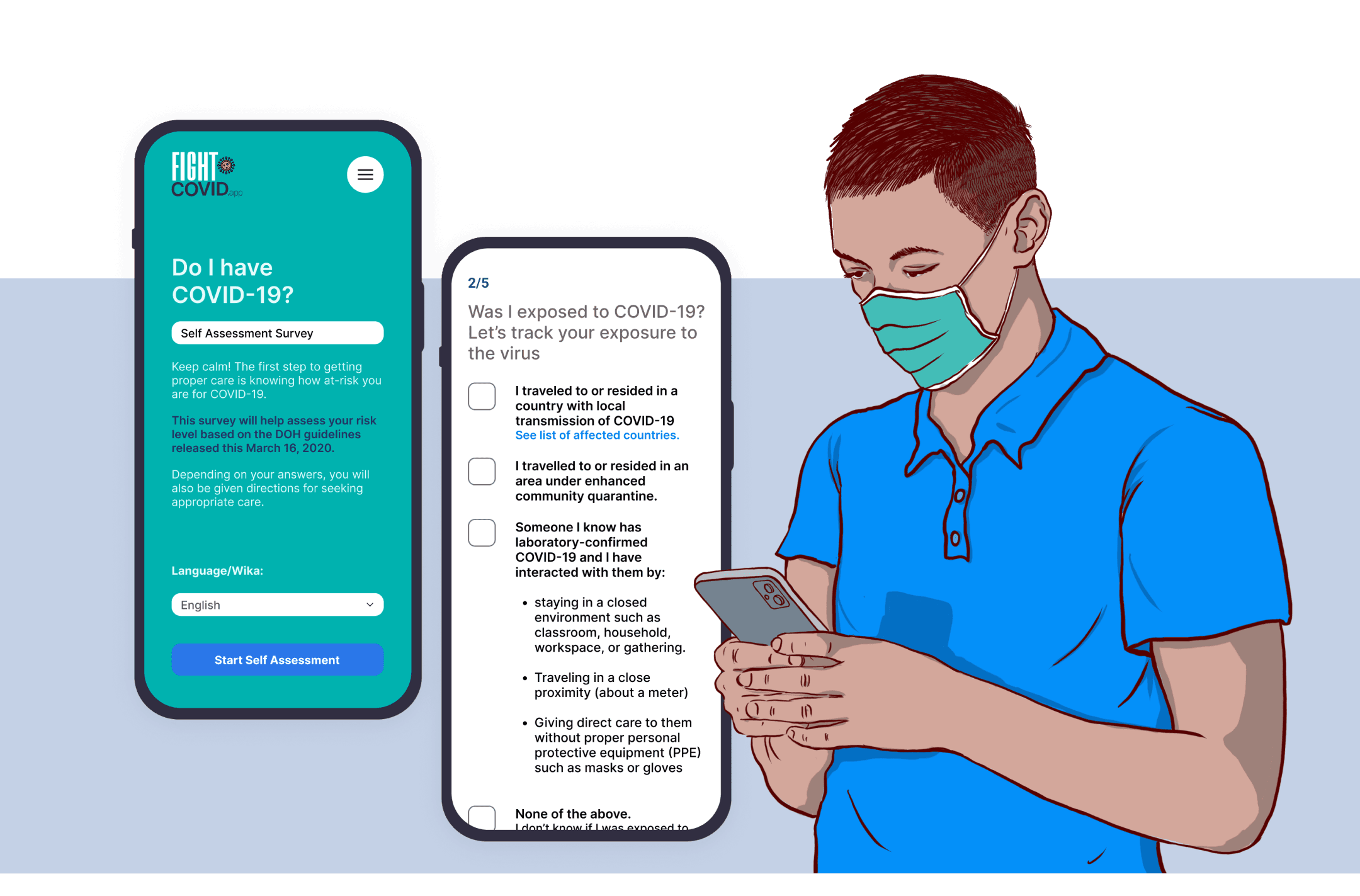
A Sense of Urgency in a Challenging Time
FightCOVID.app, from frenzied ideation to deployment, was completed in 48 hours, a crazy timeframe for any development project. But it was through the collaborative White Widget spirit that this was made possible. From coordinating our volunteer doctors and translators, to having every member of the team help test the app and review the copy, each resource available to White Widget was tapped, and worked together to achieve the goal in record time. In fact, the final deployment of FightCOVID was done at least partially on foot while escaping a city on lockdown, messaging each other on the road and from our homes. It was war, against an invisible enemy, and we weren’t going to stop fighting. For the entire lifetime of the app, we put zero branding on the platform, and never tried to get publicity for our scrappy team. Our only KPI was to try to help save lives. In the first week alone, our app received tens of thousands of unique visitors. It was then that we came to the DOH and DICT’s attention. We worked with their people to make refinements to our algorithm and correct any initial bugs that were uncovered by their people. Our work with the government changed both sides of the equation - we created a better FightCOVID.app, and the DOH eventually made improvements to their definitions and algorithms.
noypigeeks.comThe application is self-funded by the team. They were moved to action through the encounter of different COVID-19 experiences from the Filipino people. ”
The Road Ahead
By May 18, 2020, FightCOVID.app had garnered over half a million unique visitors. The app was audited by both the DOH and the DICT National Information and Communications Technology Advisory Council. The app was featured in several publications, and the innovations we developed contributed to the Philippines landing in the Top 20 of StartupBlink’s Global Coronavirus Innovation Map. But the journey doesn’t stop there. Already White Widget is working with the private sector to bolster mass testing initiatives for the country. And of course, we continue to maintain FightCOVID.app, keeping it alive to help our frontliners and our people adjust to the pandemic.
About the Authors
White Widget Team is known for delivering holistic, award-winning software solutions across diverse sectors such as transport, healthcare, and media, emphasizing a comprehensive approach to digital innovation, since the company was founded in 2012.
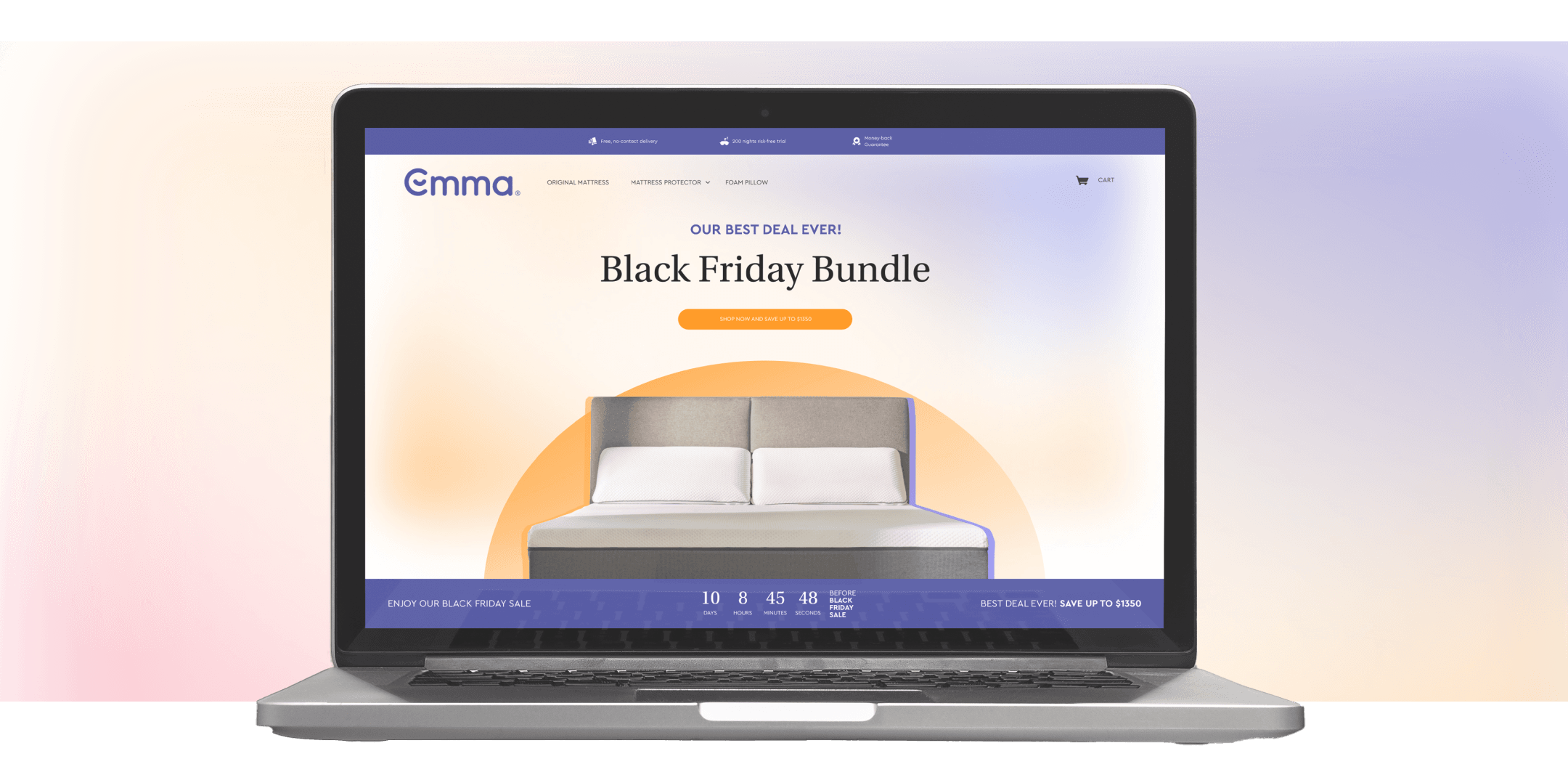
Case Study•
Dreamy online store for Europe’s #1 Sleep Brand
We developed an e-commerce website for Emma Sleep, Europe’s #1 sleep brand, and helped them exceed their US Black Friday sales records
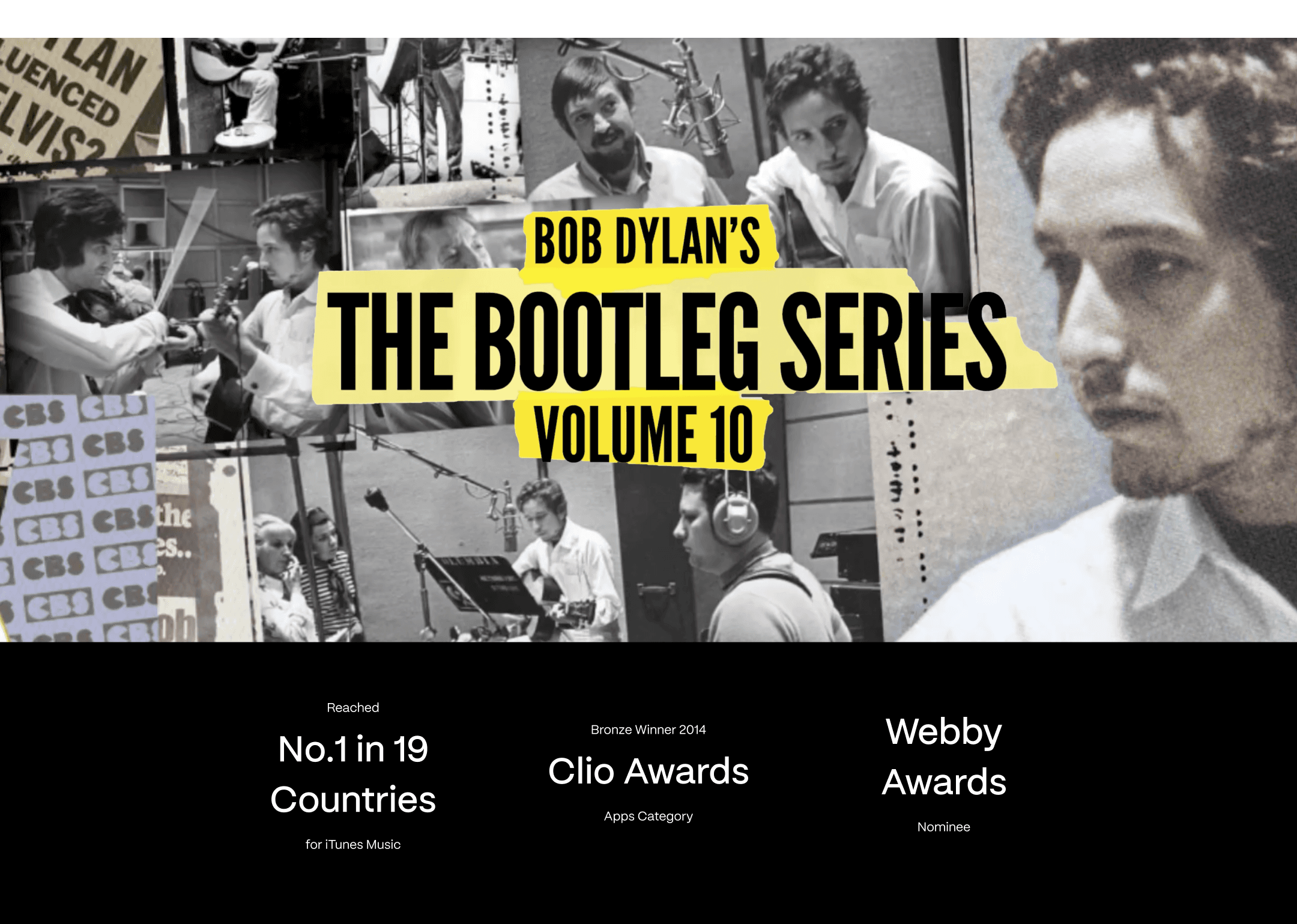
Case Study•
Award-winning music app for one of the greatest songwriters of all time, Bob Dylan
A look at how we built the Bob Dylan Bootlegs iOS app, which was nominated for the Webby Awards and won a Bronze Clio, achieved #1 in Itunes Music in 19 countries at launch, and was a huge commercial success, featuring in publications like The Guardian, Rolling Stones, USA Today, and many more.



